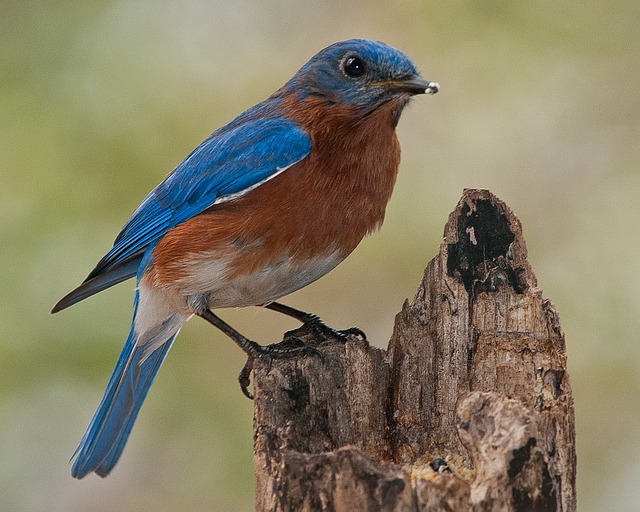“Behold the Fowls of the Air”
Posted on April 8, 2020

My father wasn’t stoic. Instead, his temperament was one of acceptance. He simply accepted the fact that he wasn’t in complete control of most things on the southern Illinois dairy farm of my youth.
Sure, he was boss over everything in sight: hundreds of acres, 100 dairy cows, five farmhand sons, three hired men, and his unpredictable, iron-bending Uncle Honey.
But control? Never. And yet, little ever moved him to anger or anxiety.
For example, when Jackie, the farm’s principal hired hand, destroyed an Oliver 77 by driving it off the corn silage pile, Dad’s only question to the still-shaking man—who was never known for speed—was how he managed to jump to safety so quickly.
Years later while sharing one of our thousand evenings in the milking parlor, I asked him why he hadn’t even cussed when he saw the mangled 77.
Ah, he said with a wave of a wet hand, once he saw Jackie was OK, the tractor didn’t matter. “It was old and insured. Jackie was neither.”
Acceptance. Somehow he just knew that there was little he could do to prevent bent cultivator bars (Uncle Honey), overturned silage wagons (Uncle Honey) and two, plowed-out telephone poles. (Uncle Honey and Uncle Honey.)
In fact, I once thought that if our family had a coat of arms, its motto would have read, “I can’t prevent it but I can fix it.”
Decades later, in one of our weekly telephone conversations, I asked my father how his best friend was dealing with a recent cancer diagnosis. “Not good,” Dad said. “He doesn’t want to see me.” Why?
“Well,” he said, “I think it’s because he hasn’t accepted the idea that dying is the cost of living.” Wow, what insight.
I asked him what he could do. Oh, he said, he’d find a reason to go to the friend’s house to talk about the weather or the Cardinals or the peach crop. Just chat, you know, about things that, when rolled together, make up today and tomorrow.
“I just want him to know that each day is a gift from God regardless if it brings a baptism or a funeral,” he announced.
That really was the essence of my father. Life ebbed and flowed and he rode it back and forth without fear or favor. He never asked for love or loyalty, he didn’t lighten his load by adding to anyone else’s, and he was religious but never preachy.
Two, almost opposite, traits might explain him better: he was a very good fisherman and he loved to play cards.
Fishing, he would say, is mostly preparation—the right bait, local knowledge, good tackle—and patience. Neither, however, ensures you’ll catch fish. That’s why “It’s called ‘fishing’ and not ‘catching,’” he’d say on the days we spent more time fishing more than catching.
Card playing, however, is mostly luck; you, literally, play the cards you’re dealt. Skill in playing them also matters but skill rarely trumps the luck of the draw.
My father embodied those near-opposites; he was prepared for whatever luck—fishing or catching—brought.
One last memory: I once asked him, a diligent Bible reader (King James Version, please) what his favorite passage was. After reciting his baptism, confirmation, and wedding verses, he settled on one that made perfect sense to him, Matthew 6, verse 26:
“Behold the fowls of the air: for they sow not, neither do they reap, nor gather into barns; yet your heavenly Father feedeth them. Are ye not much better than they?”
Ye—we—are, my father might say, today and tomorrow and everyday. That said, I’m pretty sure he’d still keep one eye fixed on Uncle Honey.
© 2020 ag comm
Share This